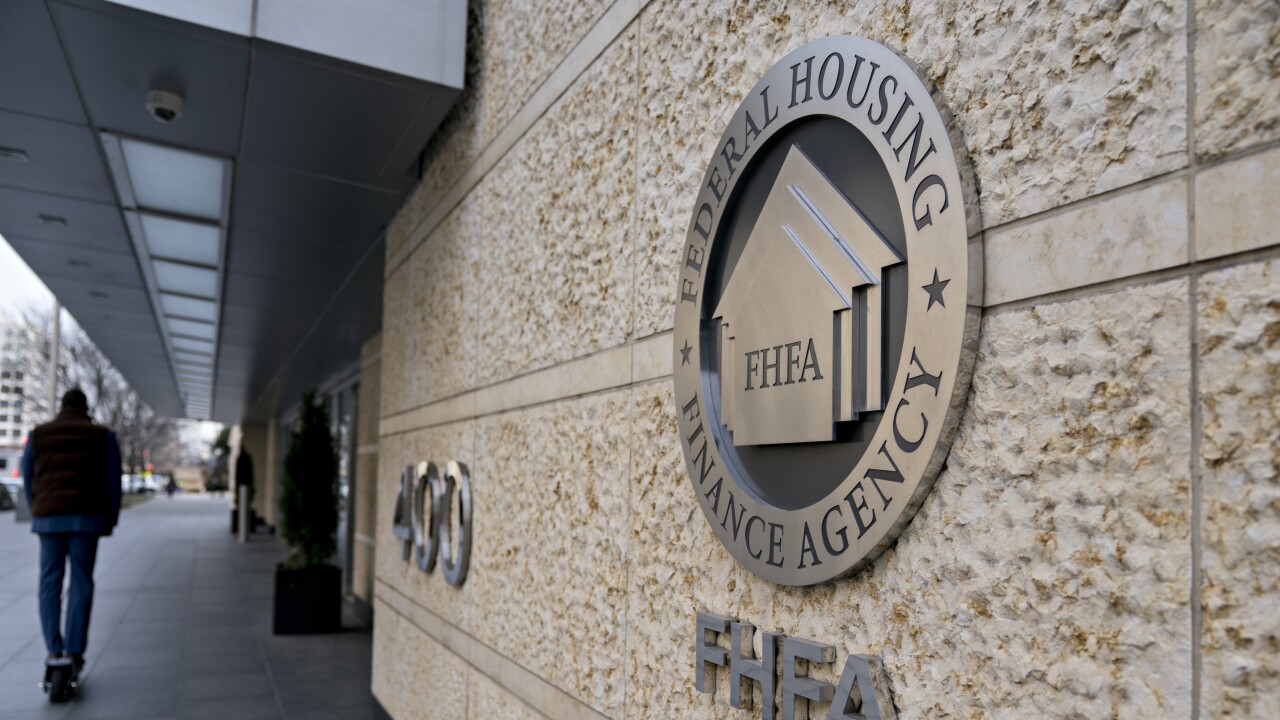The Department of Housing and Urban Development agency, which serves as the guarantor for a large government mortgage-backed securities market, told issuers in an online bulletin that it could take action if that activity exceeds allowable limits.
"This could include warranted sanctions," Ginnie warned in its Notes & News bulletin.
The warning comes as a change in monetary policy direction has contributed to rates lower than last year's peak, spurring
Historically, Ginnie's biggest concern has been with serial refinancing in
Ginnie supports housing for veterans, first-time homebuyers and older adults in the U.S. and sells bonds it guarantees to investors both domestically and internationally.
In other news, it recently held its first Latin America investor roundtable in an effort to broaden this customer base.
One of the takeaways from the event Ginnie partnered with the Inter-American Development Bank on was that mortgage markets in the two regions share some common concerns, according to Julia Gordon, commissioner of the Federal Housing Administration.
"Despite differences in the structure of our housing finance systems, we all face similar challenges, such as natural disasters, affordability and reaching underserved populations," Gordon said in a press release.
Ginnie and other U.S. agencies have been producing higher volumes of securities to sell to investors recently.
In a report for global market participants, Ginnie Mae found that total U.S. agency real-estate mortgage investment conduit issuance of late reached a high not seen since April 2022.
Combined, the single-, multifamily and reverse mortgage issuance in that category from Ginnie Mae, Fannie Mae and Freddie Mac totaled $26.2 billion during February. Ginnie alone contributed $14.9 billion to REMIC issuance, marking its highest volume since February 2022.
Ginnie had a 55% market share in February. It's accounted for the majority of REMIC issuance on a monthly basis since November.
REMICs, which are backed either by whole loans or MBS, distribute cash-flows from mortgages in ways not possible in typical pass-through securities in order to meet a greater variety of investor needs.
Meanwhile, Ginnie MBS issuance in February totaled $30.9 billion in February, up from $28.1 billion the previous month, according to a separate report issued last month. Its outstanding portfolio increased to $2.54 trillion in February from $2.53 trillion in January.
Monthly MBS issuance at Ginnie went through a period in which it trended downward between its peak of $89.7 billion in April 2021 and its low point of $24.2 billion in February 2023, but it's bounced back a little since then. It rose as high as $39.2 billion last June.
The market is watching to see whether seasonal homebuying will lift MBS issuance to that level again this year. Based on the numbers available to date, Ginnie MBS issuance generally has been trending a little higher than in 2023.





